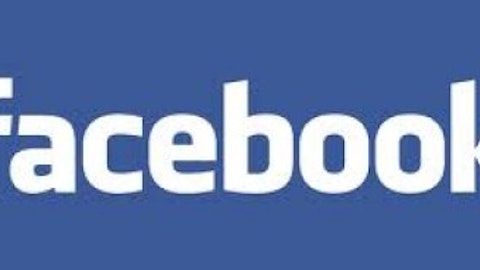Sterne Agee upgraded Groupon Inc (NASDAQ:GRPN) from Neutral to Buy and announced a $9.00 price target in a recent report. As quoted from the report:
This is an out-of-consensus upgrade predicated on a more constructive longer-term view of the company and is not a call on the company’s upcoming 4Q results. We recognize that meaningful risks remain, the stock will be volatile and we may be a bit early. However, we believe the risks are well known and largely priced in. The stock is trading at ~an 80%/60% discount to its peers based on 2014E EV/Sales and EV/EBITDA bases, respectively.
The commonly accepted belief that is reflected in Groupon’s stock valuation is that the company has a weak business model with very low competitive barriers. In this article, while I address the quite-justified concerns of the bears, I also offer a counterargument for the long-term viability of the company going forward.
Groupon Has a Weak Business Model with Low Competitive Barriers?
Good technology companies are characterized by high margins, scalability and a wide moat around their business model. Are these features missing in Groupon? Bears argue that the company spends almost nothing on R&D, has few patents to its name, and scalability is almost non-existent.
Another concern from bears is that the company’s business of selling discount deals has almost no competitive barriers. It requires no advanced technology and very little expenditure to start a daily deals website. The company faces steep competition from strong competitors like LivingSocial, AmazonLocal, and Google Offers.
The concerns for the bears are quite justified. That being said, the company has taken some solid steps, as mentioned below, in the last couple of months to improve margin and scalability. As far as the competitive barriers are concerned, I feel Groupon’s recent acquisitions and partnerships will help the company transform itself into a viable long-term business.
Groupon Seems to be Going in the Right Direction
- Last year Groupon CEO Andrew Mason set his company a goal of adding more value and diversity to its business in daily deals. Groupon recently launched Groupon Payments, offering merchants a way to accept credit cards at guaranteed lowest rates, for both iOS and Android devices.
- The company acquired CommerceInterface, a leading provider of web-based channel management technology that helps manufacturers, distributors, and retailers succeed at managing their businesses and selling online.
- Groupon announced a partnership with Broadway Inbound, the business-to-business ticketing platform, for all Telecharge Broadway and Off-Broadway events. Via the arrangement, GrouponLive, Groupon’s live entertainment division, gains the ability to process customers orders through the Broadway Inbound system, granting subscribers access to special ticket prices for top Broadway and Off-Broadway musicals, plays and concerts.
- And most recently TechCrunch reported that Groupon also acquired Y Combinator Company Glassmap, a location-aware app that will help find what is interesting and relevant in nearby locations.
Groupon Needs a Positive Network Effect like Linkedin Corporation (NYSE:LNKD) & Zynga Inc (NASDAQ:ZNGA)
The professional networking and job search site LinkedIn was first to test the public’s appetite for social stocks when it went public in May 2011. Its shares have more than doubled since then. For LinkedIn, the company remains one of the few social media plays that have trended upwards in light of meeting earnings expectations and often surprising to the upside. LinkedIn’s success lies in its dexterity to drive the network effect among users.

Network effect means that the more people using a particular product (the social media websites in this case), the higher the demand is for that product (until the stable equilibrium is reached). For social media companies, revenue growth is directly correlated with the user’s growth. This is because more users translate to more opportunities to sell, which in turn will attract more advertisers.
Social media companies are unique in that the network effects heavily impacts the growth. By successfully incorporating the network effect in its business, LinkedIn has become a unique business model, despite fierce competition. LinkedIn’s emergence decreased the chance of social media giant Facebook dominating in the professional networking market.
Another social media site, Zynga, was founded on the idea that social media users are spending a lot of time on these websites, but after you make friends and exchange some photos, there’s not much else to do. So Zynga monetizes users by giving them games to play, and things to buy while they are playing those games.
Games don’t necessarily have long shelf lives. Zynga has reduced the impact of this by constantly pushing new content to consumers for in-game purchases. Zynga continues to release a steady flow of gaming apps. It is also beginning to break out of its reliance on Facebook as it attempts to diversify its revenues.
Like Zynga offering things to buy for its users, Groupon also can offer games to customers while using the site. Initiatives like this will not only generate ad revenue but also help to have a positive network effect on customers.
The Bottom Line
Groupon’s board was recently thinking of firing CEO Andrew Mason and looking for a replacement, Bloomberg reported. Firing Andrew Mason would probably be a positive catalyst for the stock, because it means the board is looking ahead in monetizing its customers by having a positive network effect.
Worldwide growth rates for social network users are expected to be 16.0% for 2013 and 11.6% for 2014, eMarkerter.com reported. Worldwide mobile data traffic will increase 13-fold over the next four years, according to another research report. This implies social networking sites that make engagement on the go easy will prosper. I feel Groupon is going in the right direction and Groupon’s stock will continue to outperform the NASDAQ in 2013.
The article This Social Media Stock Could Double in 2013 originally appeared on Fool.com and is written by Anindya Batabyal.
Copyright © 1995 – 2013 The Motley Fool, LLC. All rights reserved. The Motley Fool has a disclosure policy.




